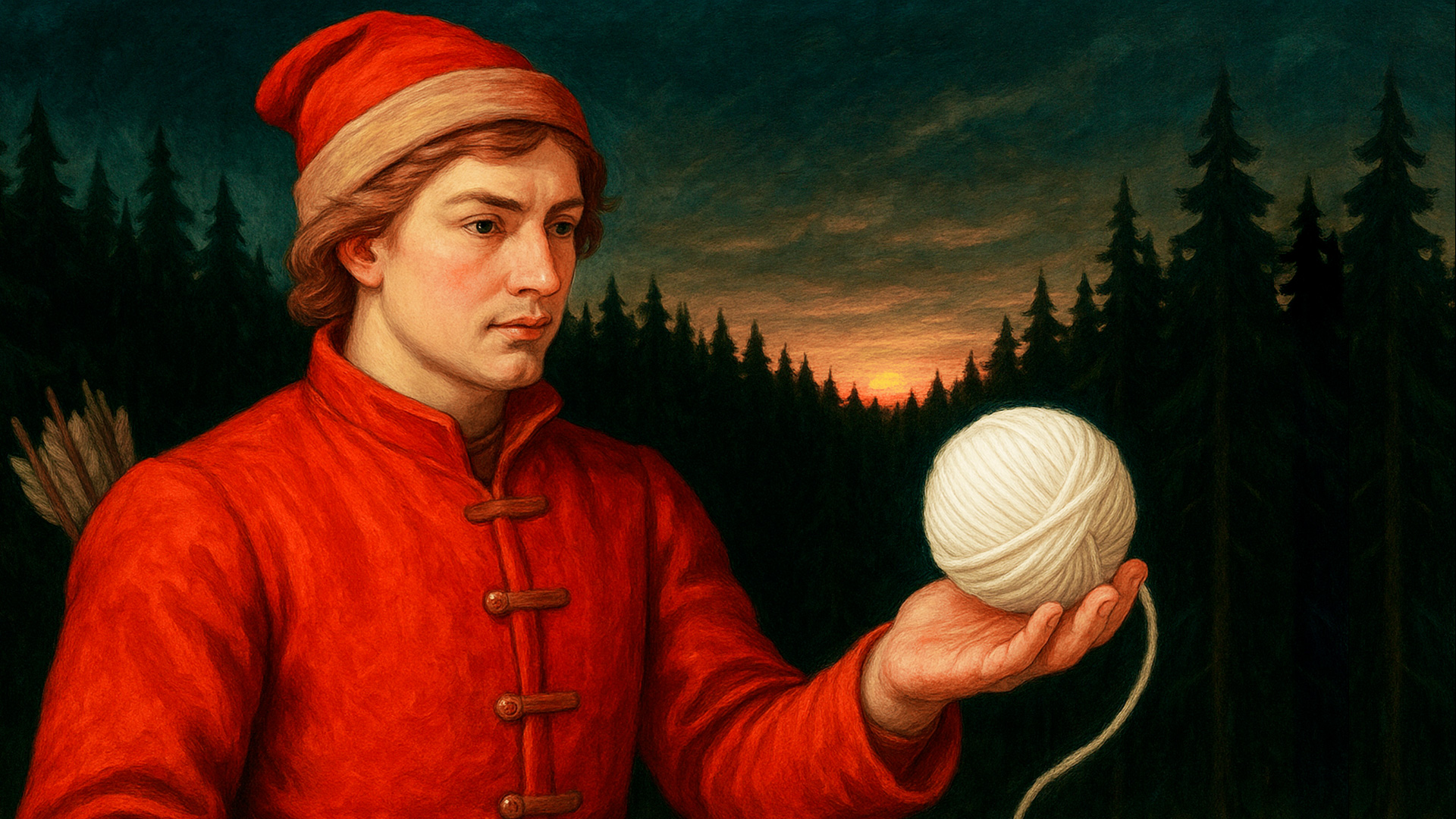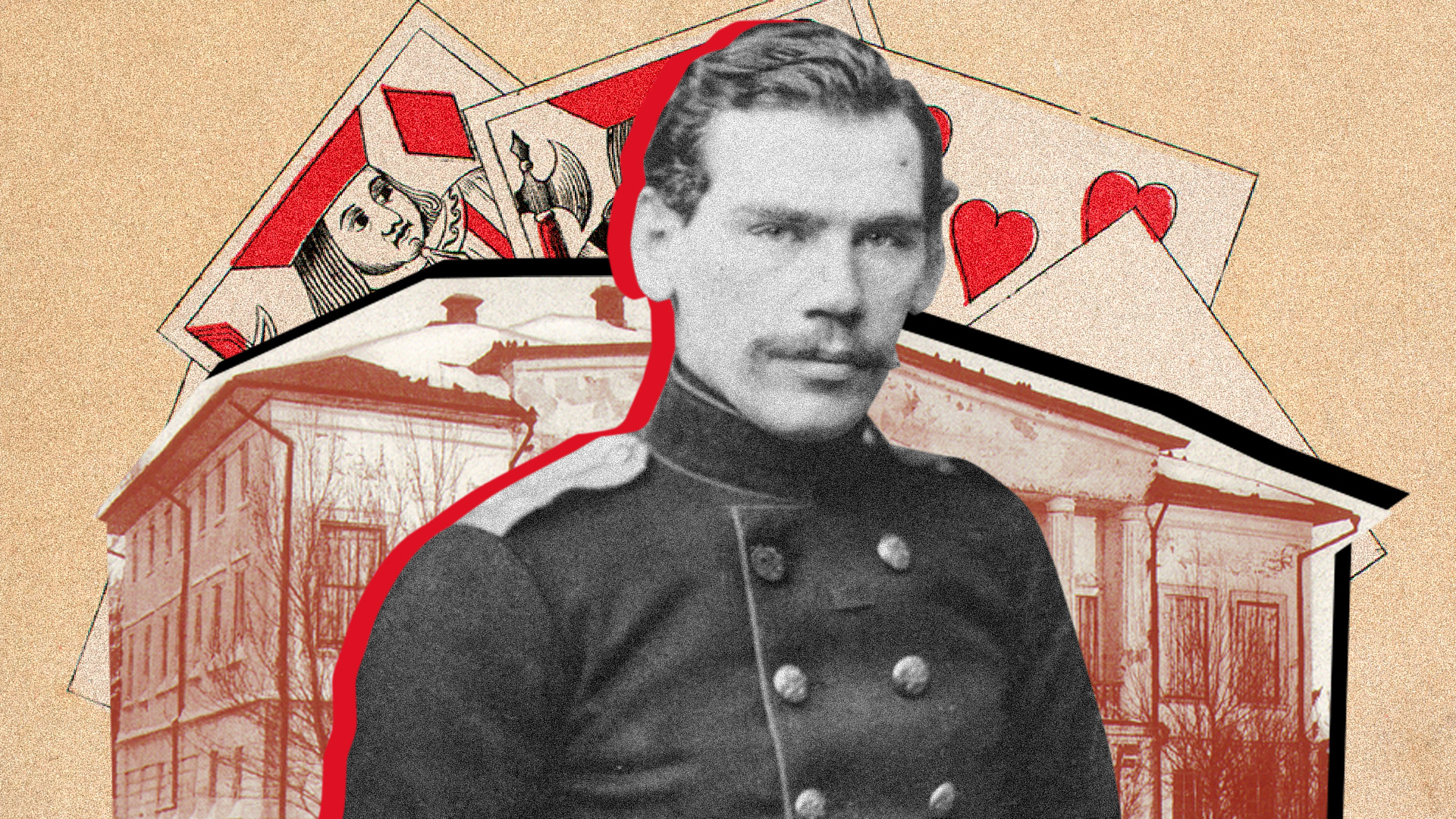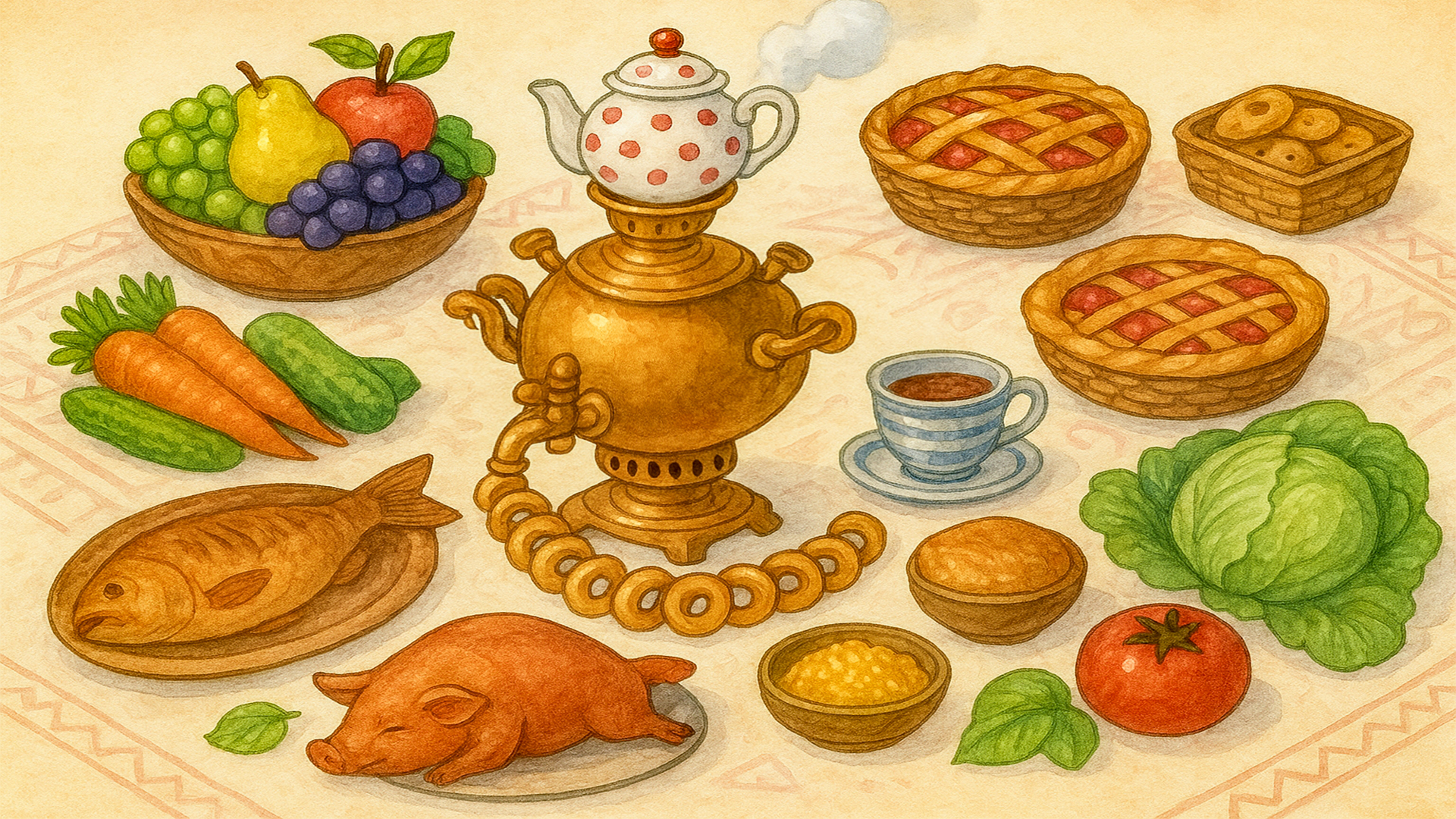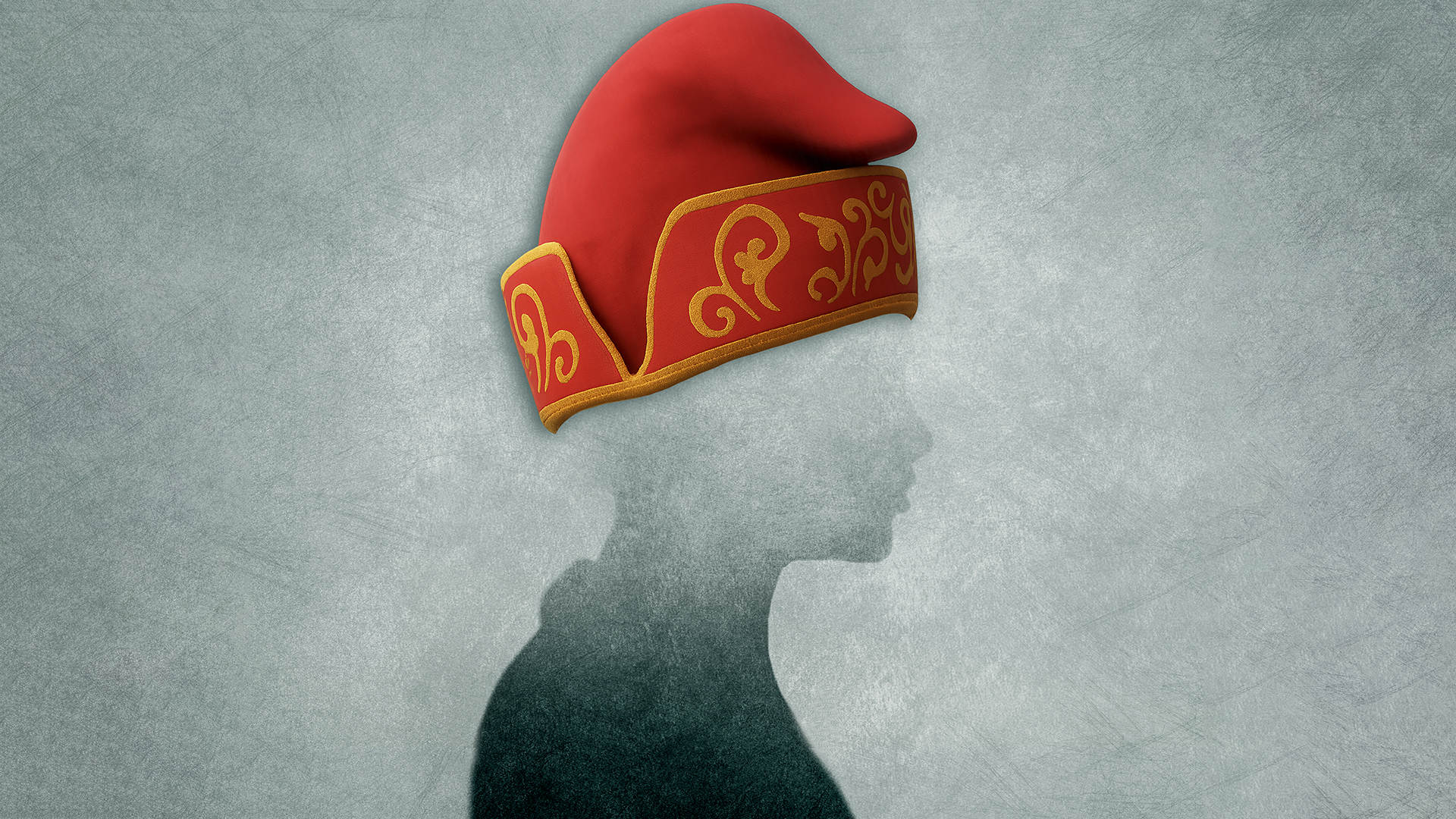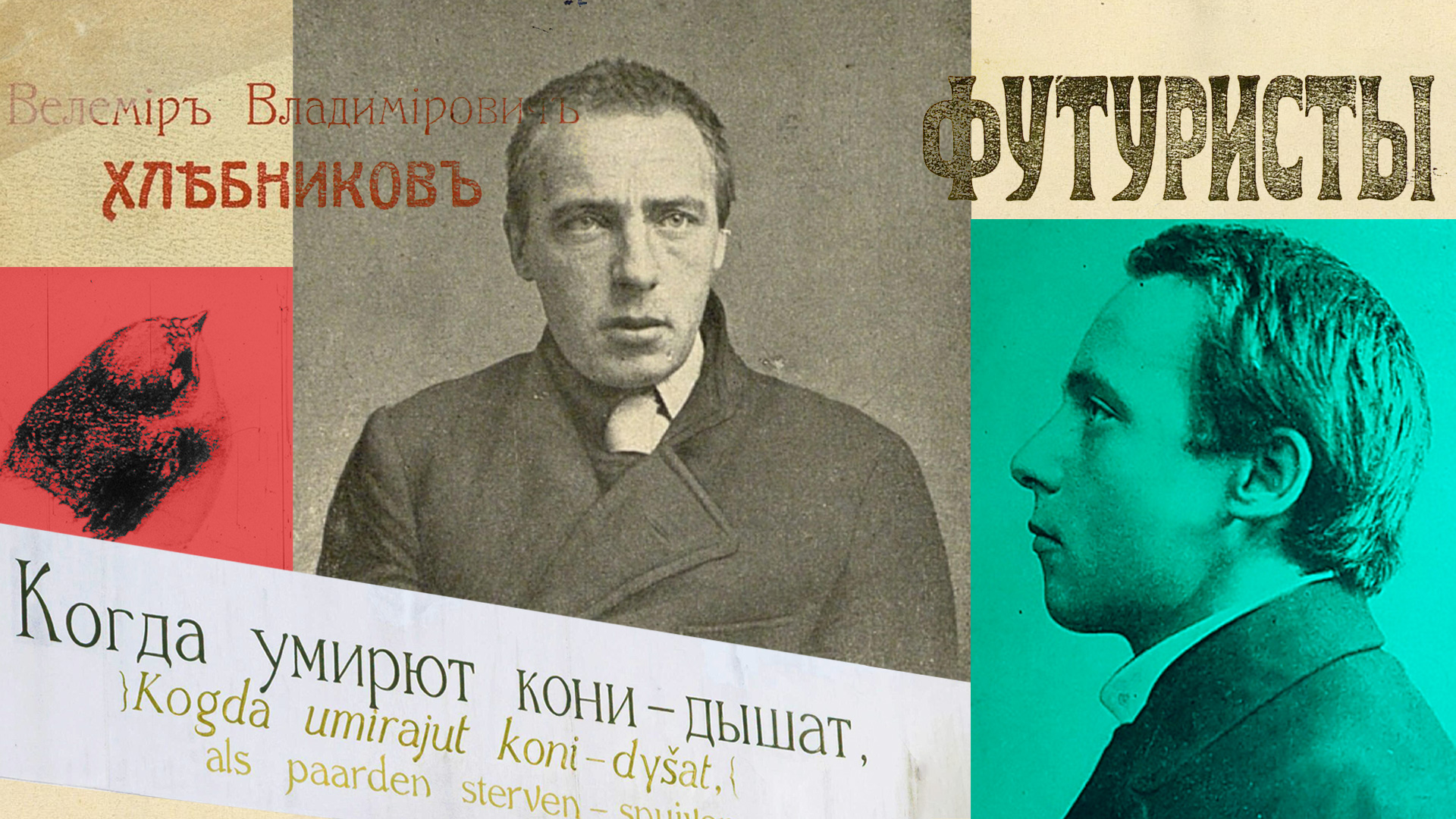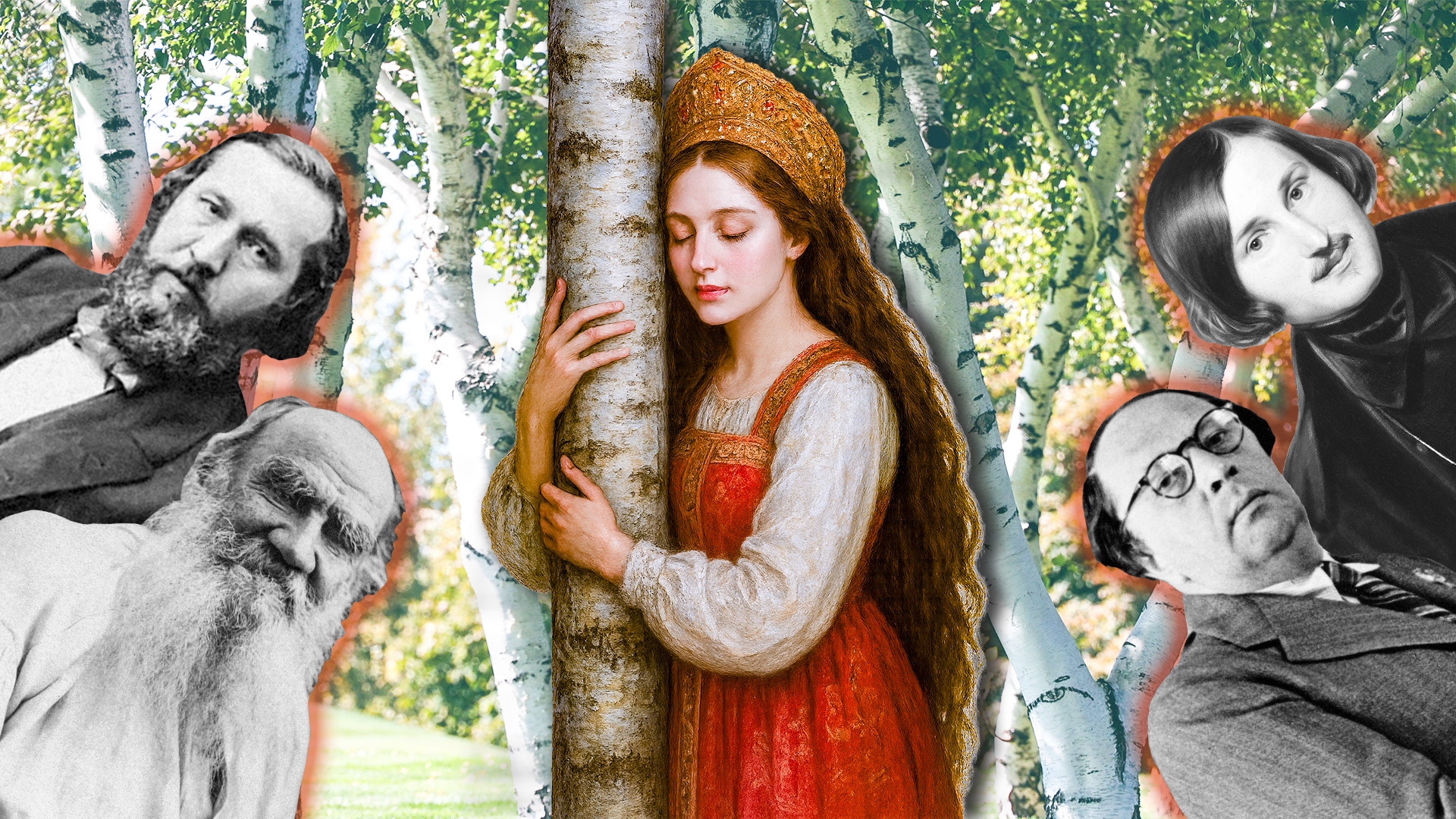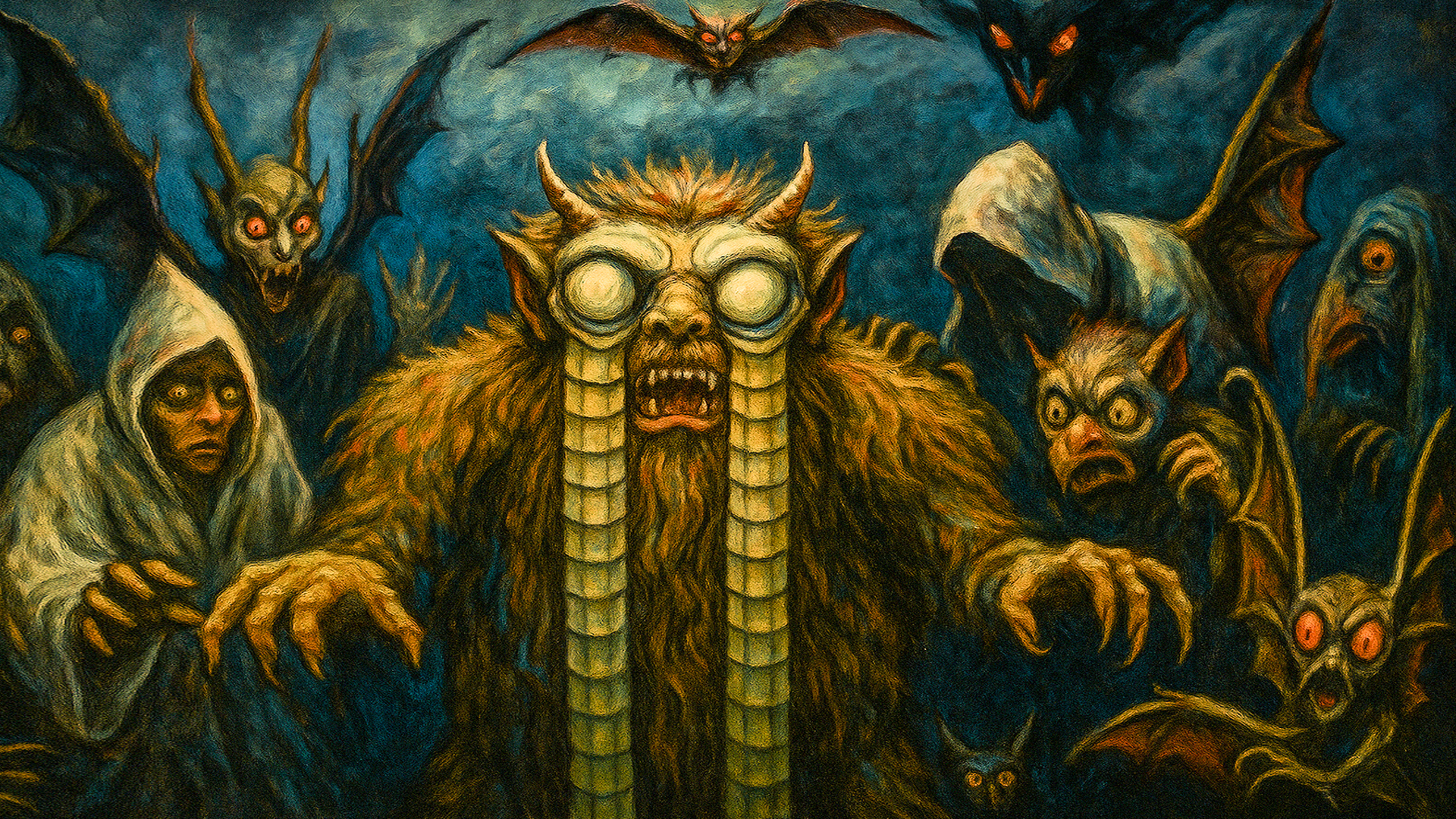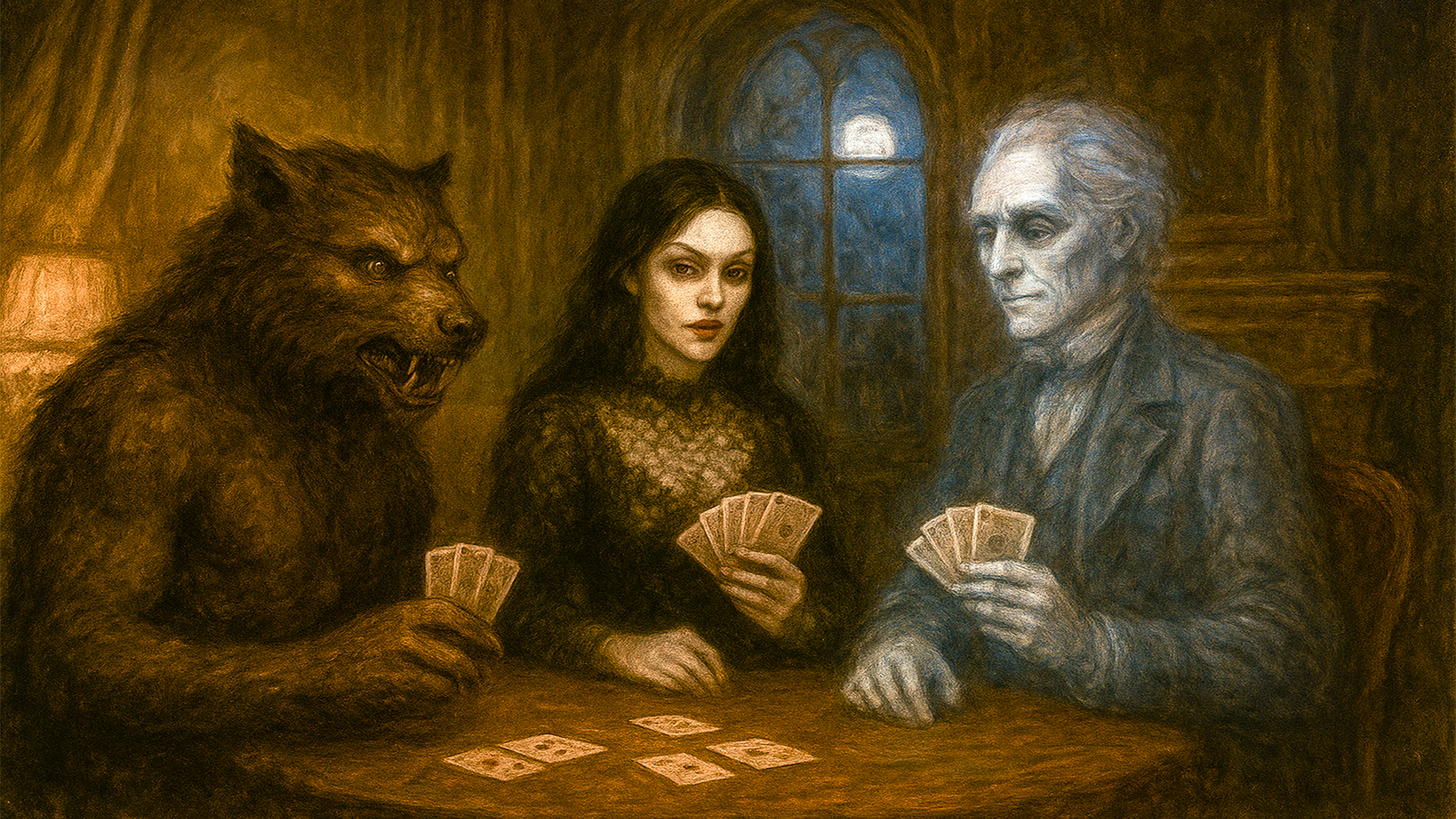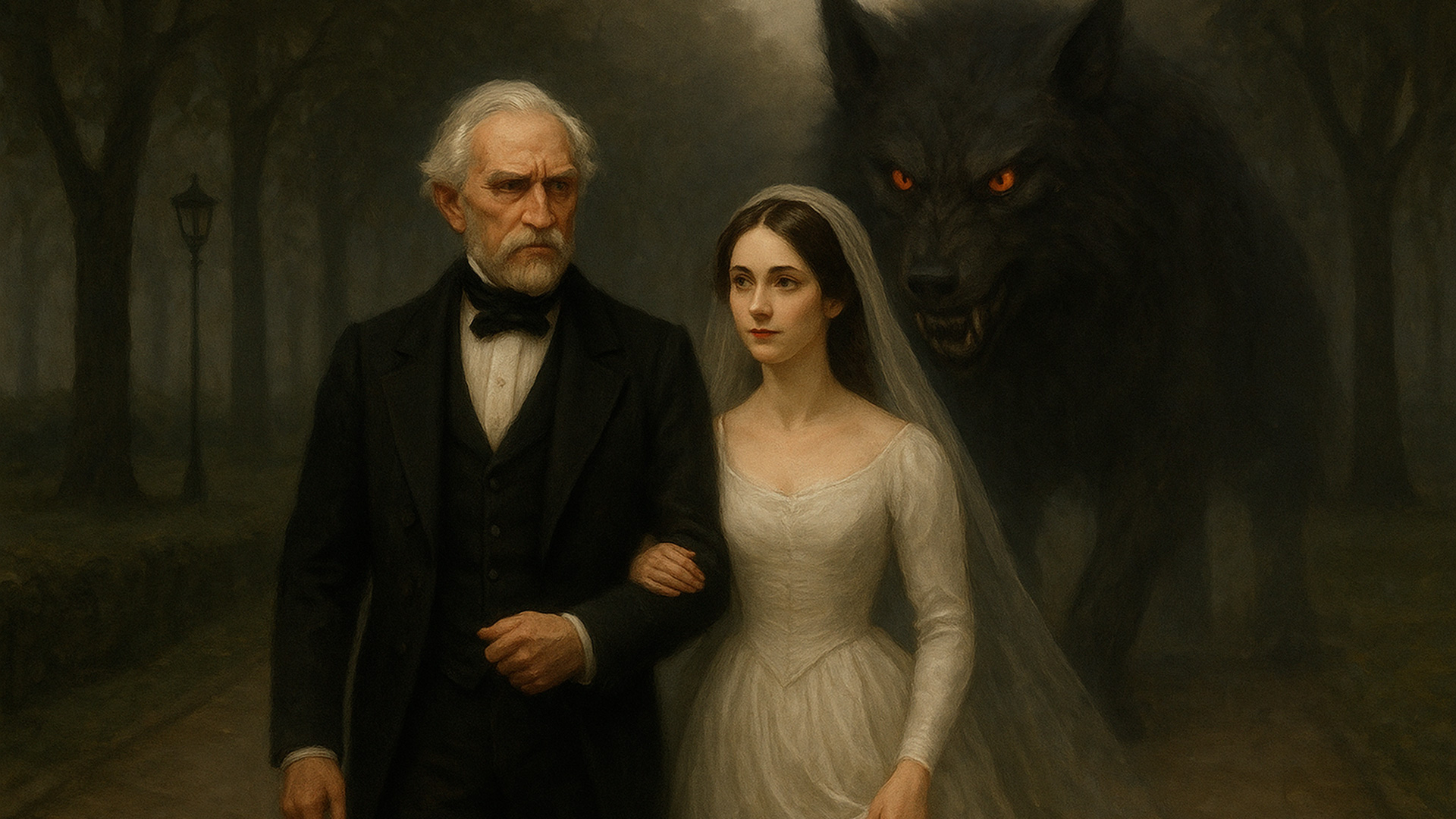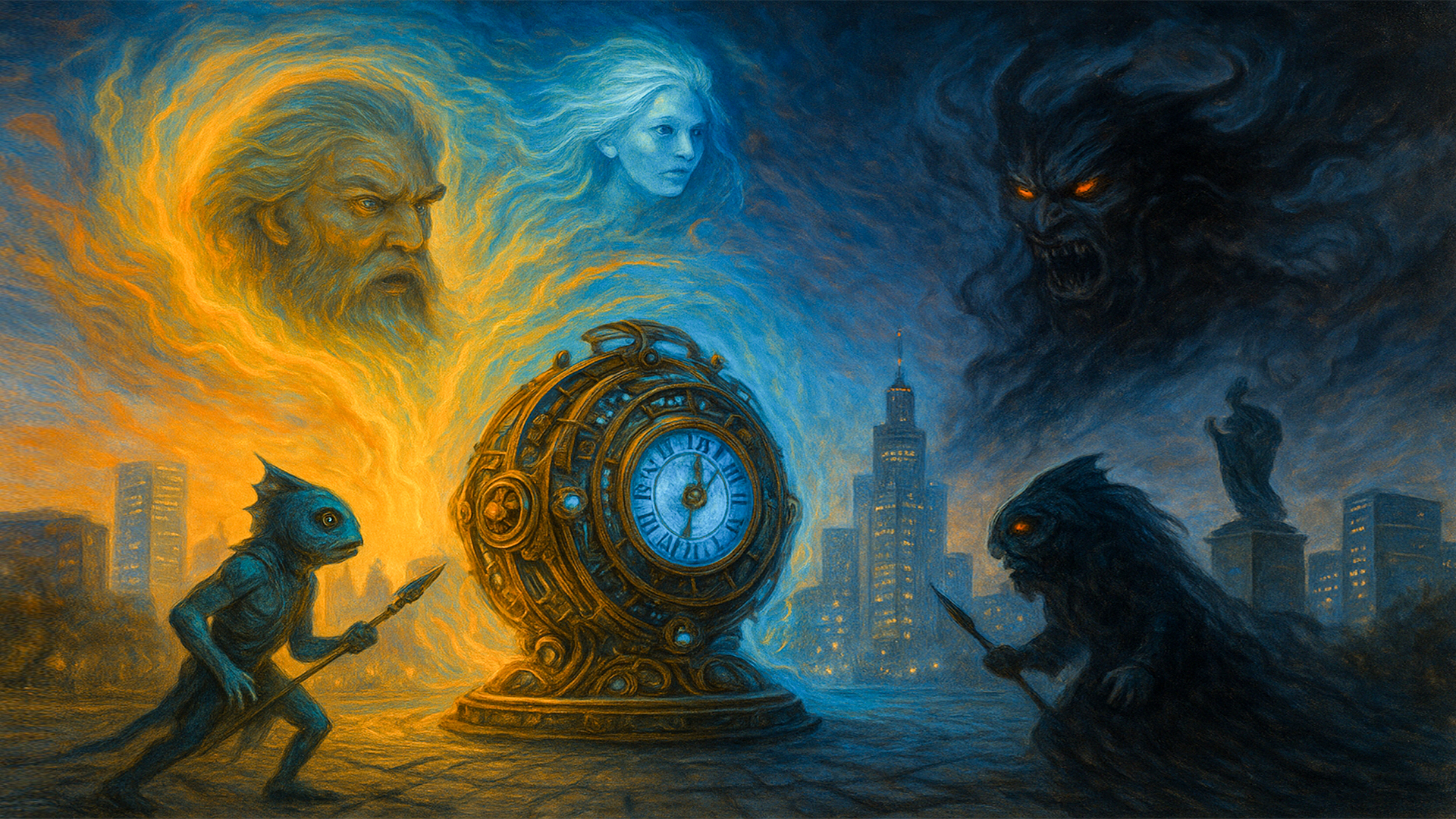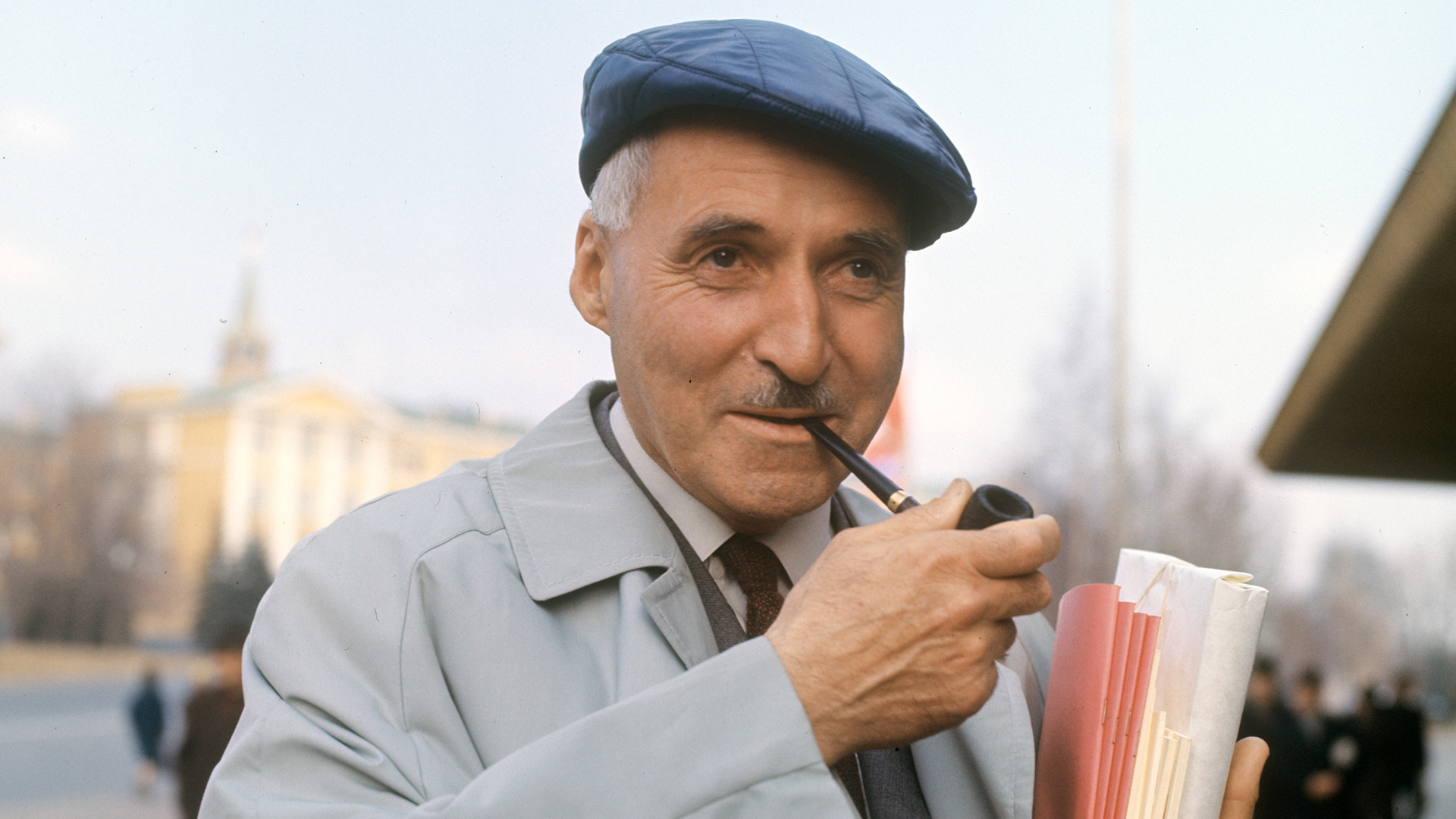
100 MAIN Russian books that everyone should read

Especially for ‘Gateway to Russia’, the Institute of Russian Literature (Pushkin House) of the Russian Academy of Sciences has compiled a list of works that anyone who is interested in Russia and Russian culture should get acquainted with.
The canons of Russian literature in Russia and abroad are different. Important authors and works are often missing abroad, especially poetry, which is usually lost in translation.
According to Valentin Golovin, director of the Institute, when compiling the list, literary scholars set themselves the task of "expanding as much as possible the list of those names that have long been eternal companions of mankind". They also tried “to include those who have a chance to establish themselves in it, thanks to new, faithful translations".
1. Nikolai Karamzin. ‘Letters of a Russian Traveler’ (1790s)
At the end of the 18th century, Nikolai Karamzin traveled around Europe for about a year. Returning to Russia, he described what he had seen in the epistolary genre (one of the first in Russian literature). He saw a lot, including the French Revolution.
His ‘Letters’ were printed several times in literary magazines and were incredibly popular. Literary scholars believe that they laid the foundation for the Russian novel as a genre and modern Russian literature, in general. In addition, it was his writings that changed the attitude of Russian travelers towards Europe.
2. Alexander Griboyedov. ‘Woe from Wit’ (1822-1824)

This comedy in verse marked a real revolution in Russian drama: written in simple language, it destroyed all the canons of 18th-century classicism and became the first realist play. ‘Woe from Wit’ is still a regular at theaters across Russia, and the names of the characters have become bywords.
The action takes place in Moscow, 10 years after the Patriotic War of 1812 against Napoleon. A young man of progressive views, Alexander Chatsky, arrives home from abroad. He goes to visit his young sweetheart Sofia, with the intention of asking her father for her hand. However, it turns out that Sofia has fallen in love with another, not entirely pleasant man, who is trying to ingratiate himself with everyone. The “reborn” Chatsky, meanwhile, feels like a stranger in his own land and quarrels with everyone…
3. Alexander Pushkin. Poetry collection
The main Russian poet wrote about 360 poems and began rhyming lines in childhood. You could hardly find a phenomenon or life circumstance that Pushkin would not have written about.
His poem ‘I Recall the Wondrous Moment’ (1825) is considered one of the best poems about love written in Russian (by the way, it has been translated into 210 languages!). ‘Prophet’ (1826) became a powerful, almost biblical statement about the purpose of poetry, while ‘Recollection’ (1828) is a repentance of incredible depth.
4. Alexander Pushkin. ‘Eugene Onegin’ (1823-1830)

This novel in verse is considered not only the pinnacle of Pushkin's oeuvre, but also an entire "encyclopedia of Russian life". The author paints a realistic picture of a provincial estate and country life, with depictions of secular St. Petersburg and old Moscow.
Onegin, a young aristocrat from the capital, arrives in a village. He quickly becomes bored and seeks entertainment, but finds himself engulfed in a real drama: Tatyana, a neighbor's daughter, confesses her love for him, while another neighbor named Lensky, who happens to be his best friend, challenges Onegin to a duel over Tatyana’s flirtatious sister…
The work is almost impossible to translate, due to Pushkin’s poetic wizardry and invention of the ‘Onegin stanza’ with its precise structure and rhyme. Outside Russia, it is appreciated more as an opera, namely Pyotr Tchaikovsky’s in 1877-78.
5. Alexander Pushkin. ‘Boris Godunov’ (1825)
Another of Pushkin’s works to be “opera-ized” – this time by Modest Mussorgsky. As a play, it has been staged countless times and adapted for screen. In the drama, inspired by Shakespeare’s histories, Pushkin recounts one of the most mysterious episodes in Russian history: the murder of Tsarevich Dmitry, the second son of Ivan the Terrible, the Time of Troubles and the appearance of the impostor False Dmitry. Thanks to Pushkin, Boris Godunov is remembered in the public consciousness as the instigator of the murder of Tsarevich Dmitry, for which he was punished by fate.
6. Alexander Pushkin. ‘The Bronze Horseman’ (1833)

This story in verse is a paean to St Petersburg. “I love you, Peter’s creation” is one of the most famous quotes from the work. The title of the story comes from the nickname of the famous equestrian monument to Peter the Great, which has become a symbol of the city. Although the work eulogizes the city’s architectural elegance, the main plot revolves around a tragic real-life event: the Great Flood of 1824, which decimated the city. The protagonist, again called Eugene, discovers that the house of his bride has been swept away and she has perished. He goes crazy and wanders around the city, observing the devastation and cursing the city’s founder, who doesn’t take kindly to criticism…
7. Alexander Pushkin. ‘The Captain's Daughter’ (1836)
‘The Captain's Daughter’ is an historical novel about the peasant uprising led by Yemelyan Pugachev that swept across Russia in the 18th century. But more than that, it is a tale of honor, duty and love.
The young Petya Grinev goes to serve at a remote border fortress. On the way, a stranger helps him find his way in a heavy snowstorm. In gratitude, Grinev gives him his sheepskin coat, an act that later saves his life, for the stranger turns out to be none other than Pugachev himself. The novel is worth reading if only for the prophetic phrase: “God save us from seeing a Russian revolt, so senseless and merciless.”
8. Mikhail Lermontov. Poetry collection (‘Demon’, ‘Mtsyri’, etc.).
Lermontov is considered the second most famous Russian poet after Pushkin. He is recognized for many beautiful verses and poems in the style of romanticism revolving around the opposition of good and evil, freedom and captivity.
Poetic fame came to him after his poem ‘Death of a Poet’, which he wrote after the death of his idol, Alexander Pushkin. Accusing the authorities in it of Pushkin's death cost Lermontov a lot: he was sent into exile in the Caucasus; however, this place, it turned out, had a great influence on his work. Mountain landscapes, turbulent rivers and local beauties inspired many romantic works , as well as his main poems, such as ‘Demon’ (1839) and ‘Mtsyri’ (1838-39).
9. Mikhail Lermontov. ‘Masquerade’ (1835)

This play in verse is about a nobleman obsessed with gambling and jealousy so much that, as a result, he murders his own wife. Lermontov dreamed of seeing his work on stage, but, during the poet's lifetime, censorship would not only not allow the play to be staged, but also to be printed. Theaters staged the drama for the first time only 20 years after the author's death and, since then, has not come off them.
10. Nikolai Gogol. ‘Evenings on a Farm near Dikanka’ (1829-1832)
These short stories are set in a small village then on the edge of the Russian Empire (present-day Ukraine). Gogol makes extensive use of Ukrainian words, even providing his own glossary, as well as images of local lore. In the stories, he describes the local customs and folk way of life. The stories are extremely diverse, ranging from the merry ‘The Night Before Christmas’ to the blood-curdling ‘A Terrible Revenge’. At the same time, evil spirits, devils and witches are all properly formed characters, each with their own personality. The collection was warmly received by contemporaries: Pushkin, for example, extolled Gogol’s lively language and vivid imagery.
11. Nikolai Gogol. ‘Taras Bulba’ (1835)
This story is part of the ‘Mirgorod’ collection, which is considered to be a continuation of ‘Evenings on a Farm’. Plotwise, they are not connected, but they are both based on folklore. Of the four novels, two are more famous and have been screened many times: ‘Viy’ and ‘Taras Bulba’. The latter is about a Zaporozhian Cossack and his two sons. It is an incredibly dramatic story about love and betrayal.
12. Nikolai Gogol. ‘Dead Souls’ (1835)

Although it was written in prose, Gogol himself described this work as a poem – in the antique sense of a Dantesque journey through the “circles of hell”, with lengthy lyrical digressions about Russia and her long-suffering people. The work is considered the pinnacle of Gogol's artistry and one of the keys to understanding the Russian soul.
The plot revolves around a petty nobleman named Pavel Chichikov, who, arriving in a provincial town, pretends to be a wealthy landowner to gain prestige. The only snag is that he doesn’t own a single “soul”, i.e. serf. So, he resorts to chicanery, aided by Russian bureaucracy itself, which, at that time, made it possible to buy up “dead souls” from local landowners – deceased peasants still recorded as alive on the state register (population censuses in those days were rare and rough, at best). The landowners, each more comically grotesque than the previous, react differently to Chichikov’s proposal…
13. Nikolai Gogol. ‘The Overcoat’ (1841)
For the first time in Russian literature, this story brought the “little man”, an ordinary townsman, to the forefront. Akaki Akakievich Bashmachkin is a miserable official, who gives all of himself in the service of… rewriting papers. He spends all his money on a new overcoat, which, however, immediately gets stolen. But, he does not rebel, instead quietly suffers and goes mad…
14. Nikolai Gogol. ‘The Government Inspector’ (1835)
One of the most celebrated Russian comedies about corruption, sycophancy and officialdom’s attitude to ordinary people. This play is still regularly staged in theaters across Russia and the world. In the story, a small provincial town is expecting an incognito visit from a government inspector from St. Petersburg. However, a minor official who happens to be in the town is wrongly identified as the important guest. He decides to exploit the lickspittle mayor and his subordinates by accepting bribes and even the mayor's daughter in marriage…
15. Vasily Zhukovsky. Poetry collection (‘Svetlana’, ‘Twelve Sleeping Virgins’)
Zhukovsky is considered to be the father of Russian romanticism. The poet wrote many elegies, songs, romances, ballads and epic poems. His most famous works are the poems ‘Svetlana’ (1812) and ‘Lyudmila’ (1908), as well as ‘The Twelve Sleeping Virgins’ (1810-1817), which the author calls “an old tale in two ballads”. One of the main literary merits of the poet is also the translation into Russian of Homer's ‘Odyssey’, which is now considered a classic.
16. Vladimir Odoevsky. ‘Russian Nights’ (1844)

This profound philosophical novel is the first of its kind in Russian literature. It is not studied in school, but it became a major event in 19th century literature and received rave reviews from critics. It is impossible to clearly classify the genre of ‘Russian Nights’: it’s a kind of record of conversations among intellectuals, every night reflecting on different topics.
17. Antony Pogorelsky. ‘Black Hen or Underground Dwellers’ (1825-1826)
Alexey Perovsky, the illegitimate son of Count Alexei Razumovsky, hid under the pseudonym ‘Antony Pogorelsky’. He was a military man, but was fond of literature and was a great admirer of German romantic storyteller Ernst Theodor Amadeus Hoffmann. It is believed that Perovsky wrote his famous story for his nephew and pupil A. K. Tolstoy, the future writer and author of ‘Prince Serebrenni’.
According to the story, a boy named Alyosha is staying at a boarding house on his holidays. He feeds hens and makes friends with a black one, who turns out to be an undercover minister of an underground kingdom… By the way, A. K. Tolstoy's cousin, Leo Tolstoy, liked the story, too.
18. Yevgeny Baratynsky. ‘Ball’ (1828)
For descendants, Baratynsky remained in the shadow of his brilliant friend Alexander Pushkin. However, contemporaries highly appreciated his poems and verses and praised for the ease and elegance of rhymes. In the poem ‘Ball’, he described Moscow social life, of which he knew firsthand.
19. Sergei Aksakov. ‘Family Chronicle’ (1840-1856)

Aksakov was a major publicist, theater critic, censor and author of the first highly artistic “notes” on fishing and hunting (Ivan Turgenev with his famous ‘A Sportsman's Sketches’ was inspired by him).
In addition, he was the author of the important memoirs. His ‘Family Chronicle’ trilogy is not just an autobiography, but a large-scale description of the social system and the 19th century Siberian landowner life.
20. Alexei Tolstoy. ‘Prince Serebrenni’ (1859-1861)
One of the most famous historical novels tells about the events of the 16th century, under the reign of Ivan the Terrible (1530-1584). At the center are the exploits and adventures of Nikita the Silver (Serebrenni), a fictional Russian prince surrounded by real characters of the era, including the tsar and his retinue of ‘oprichniki’. The book is based on real historical documents, so it has been praised by both historians and literary critics.
21. Leo Tolstoy. ‘Anna Karenina’ (1873-1877)
This is another majestic novel by Tolstoy. But, unlike in ‘War and Peace’, the author’s focus here is not on epoch-defining historical events, but on the nature of happiness and unhappiness in family life. This theme was very close to the writer’s own heart. What’s more, Tolstoy himself “stars” in the novel: in the person of Konstantin Levin (Lev is Russian for Leo), who, like Tolstoy, withdraws from high society in favor of plowing the fields with his peasants.
22. Leo Tolstoy. ‘War and Peace’ (1863-1869)

Tolstoy’s opus magnum, a four-volume epic novel known and loved the world over. It tells the story of several Russian families against a backdrop of crucial historical events, most notably Imperial Russia’s war with Napoleonic France. The narrative encompasses love and betrayal, war and hard-won peace, both political and emotional. Tolstoy speaks on behalf of a cast of hundreds of characters (including Napoleon himself), each with their own unique voice, full of depth and color. For those as daunted by the novel as the French were by the Russian winter, we recommend the Oscar-winning Soviet movie adaptation directed by the late, great Sergey Bondarchuk.
23. Leo Tolstoy. ‘Sevastopol Sketches’ (1855-1856)
When still young, Tolstoy served several years in the Caucasus and, during the Crimean War of 1853-1856, he spent almost a year in Sevastopol.
It was a hard time for him and all the horrors of the war were described by him in ‘Sevastopol Sketches’, recognized as one of the first war correspondences in Russian.
24. Leo Tolstoy. Novellas & stories (‘The Cossacks’, ‘Hadji Murat’, ‘The Death of Ivan Ilyich’, etc.).
Many times Tolstoy turned to the Caucasian theme, including in the novellas ‘The Cossacks’ (1862) and ‘Hadji Murat’ (1896-1904). The plots are based on real stories laced with the author's fiction about love, honor and betrayal. In his small works, Tolstoy also pondered a lot about death: in ‘The Death of Ivan Ilyich’ (1882-1886), he tried to look it in the face.
25. Ivan Goncharov. ‘Oblomov’ (1847-1859)

This novel about the peculiar Russian laziness introduced the concept of ‘Oblomovshchina’ into colloquial Russian speech. Goncharov’s anti-hero, Ilya Oblomov, does nothing except loaf around. He is a landed nobleman, which means he has no need to work… His childhood friend and polar opposite, the enterprising Andrey Stolz, does everything for him. The only moment in life when Oblomov briefly emerges from his slumber is when he falls in love. But, can such a man really commit to marriage? Interestingly, the author remains impartial, siding with neither the indolent Oblomov nor the rationalist Stolz.
26. Fyodor Dostoevsky. ‘The Brothers Karamazov’ (1878-1880)
Dostoevsky’s last and arguably greatest novel, and the quintessence of his deep reflections on faith, morality, duty and love. This monumental work is part theological reflection, part detective story: the plot revolves around the murder of the dissolute Fyodor Karamazov by one of his sons. The themes of money and a father-son love rivalry that pre-empted Freud are interwoven into the narrative. The finale features a dramatic court scene, where the witness testimony keeps the reader in suspense till the very end.
27. Fyodor Dostoevsky. ‘Notes from Underground’ (1863)
‘Notes’ was a work of innovation, in genre, form and content. It is an existentialist novel, which heavily influenced the dystopian stories of the 20th century. At the same time, it’s a philosophical story and a novel-confession and a tragic story about the nature of our desires.
28. Fyodor Dostoevsky. ‘The Idiot’ (1868)

Dostoevsky is known for probing the evil that lurks inside the human soul, but, in this novel, he depicts not just a positive character, but an almost ideal person, with Christ-like characteristics. Prince Myshkin – naive, trusting, unaffected – finds himself at the center of a whirlpool of passions, but rises above the crowd of liars and drunkards surrounding him. Even in Nastasya Filippovna, regarded by society as a “fallen” woman, the protagonist sees only beauty and goodness, becoming imbued with tremendous affection for her.
29. Fyodor Dostoevsky. ‘Crime and Punishment’ (1865-1866)
The impoverished student Rodion Raskolnikov, barely able to make ends meet, is forced to borrow money from an elderly pawnbroker. Tired of his beggarly existence, he poses himself a philosophical question: am I a trembling creature or have I the right…? To prove to himself that he is master of his own destiny, he resolves to commit a crime, and not just any: to murder the old pawnbroker.
Dostoevsky ponders the nature of violence and the circumstances that can force a person to take extreme measures: murder or prostitution, as the protagonist’s beloved Sonya Marmeladova has to do. The novel is also a profound statement on the search for the meaning of life.
30. Ivan Turgenev. ‘A Sportsman’s Sketches’ (1847-1851)
These stories by Turgenev were based on real episodes that occurred on the family estate. The writer introduces a panoply of characters and personalities from the Russian countryside with their everyday troubles. The stories were first published sequentially in the literary magazine ‘Sovremennik’, then issued as a separate book. The work was considered groundbreaking in its day: Turgenev was the first to take such a broad look at the Russian people.
31. Ivan Turgenev. ‘Torrents of Spring’ (1872)
A young man named Sanin travels through Europe and meets a young Italian woman, gradually falling in love with her. Thinking about marriage, he goes on business to Wiesbaden, where he is seduced by a noble lady…
Turgenev became one of the first writers who put women an order of magnitude above men in terms of strength of mind and moral qualities. The image of the so-called “Turgenev's girl” appears in many of his novels alongside will-less, impoverished men.
32. Ivan Turgenev. ‘Home of the Gentry’ (1856-1858)

Turgenev raises issues of the nobility, the confrontation between Russia and the West and the question of moral principles. Disappointed with life in Europe, Lavretsky returns to his estate in Russia to “plow the land”, where he soon falls in love with Liza, the neighbor's daughter. Their love is mutual and, having learned about the death of his wife, who remained in Europe, he proposes to her. However, it suddenly transpires that the wife is still alive. Heartbroken, Liza goes to live in a convent…
33. Ivan Turgenev. ‘Fathers and Sons’ (1860-1861)
A young man named Arkady Kirsanov goes home to his father's estate accompanied by his friend, Yevgeny Bazarov, a nihilist student. Bazarov is studying to be a doctor and intends to help peasantry. He rejects all authority and argues with his landowner father and Arkady's aristocratic uncle, who both hold liberal views. But, not even a nihilist is immune to love…
Russian writers had previously touched on the topic of generational conflict (the aforementioned Griboyedov in ‘Woe from Wit’), but it was Turgenev's novel that really fueled the topic. He also mocked the overly refined gentry, introducing a new progressive hero and noted that real life lies in toil, not in idleness.
34. Nikolay Nekrasov. Poem collection (‘Who Can Be Happy and Free in Russia?’ and others)

This is a somewhat Homeric poem, but based on Russian folklore. Seven peasants argue about who is happy and free in Russia: a priest, a merchant, a wealthy landowner or the tsar? And they set out on a journey in search of happy people… But will they find any? Because the work exposes the terrible plight of the peasants and criticizes serfdom (as well as the reforms that abolished it in 1861, which had only made life worse for both landowners and peasants). Nekrasov had trouble with the censors, who forced him to make changes. Nekrasov was concerned about the fate of Russian women, too, whose unenviable plight he poignantly describes.
35. Fyodor Tyutchev. Poetry collection
Tyutchev wrote his early poems under the impression of German Romanticism, but, later, became a distinctive poet and reflected on the nature of creativity. He led a polemic with Pushkin and, in the poem ‘To Pushkin's Ode on Liberty’ (1820), proclaimed that a poet should soften and not disturb humans' hearts.
An important theme for Tyutchev was also loneliness and the dialog of man with the universe. In 1866, he wrote his most famous work: ‘You cannot understand Russia with your mind’.
36. Afanasy Fet. Poetry collection
The main themes of this Romantic poet are nature, love, beauty and art. His verses and elegies are so melodious that many were put to music. For example, Tchaikovsky's favorite poem was ‘Upon A Haystack On A Southern Night…” (1857).
Fet is also remembered by his contemporaries as a translator of Goethe's 'Faust', Ovid's 'Metamorphoses', poems by Catullus and many other ancient works.
37. Dmitri Grigorovich. ‘Gutta-percha Boy’ (1882)
A heartbreaking tale about the deplorable existence of the beggars and poor people in Tsarist Russia. The protagonist is an orphan boy. He works as an acrobat in the circus, where he amazes the audience with his flexibility. The story of his fate is set against the background of the impressions of Vera, a girl from a wealthy family, who comes to the circus to watch a performance and witnesses the hero's death.
38. Vladimir Korolenko. ‘The Blind Musician’ (1886)
A realist writer and a master of the short story, as well as multi-volume memoirs ‘History of my contemporary’, Korolenko vividly and voluminously showed life in Russia and the intellectual environment of the late 19th – early 20th centuries. ‘The Blind Musician’ is one of his most famous novels, which contains a psychological analysis of the life and feelings of a blind man, who cognizes the world through music.
39. Vsevolod Garshin. ‘A Red Flower’ (1883)

Garshin developed methods that writers of the second half of the 19th century were working on, such as penetration into the depths of the human psyche and feelings. Contemporaries highly appreciated Garshin as a writer and a master of small prose. One of the most important stories in his work is the autobiographical ‘A Red Flower’, an incredible immersion into the inner world of a person with mental illness.
40. Nikolai Leskov. Novellas & short stories (‘Lady Macbeth of the Mtsensk District’, ‘The Enchanted Wanderer’, ‘The Toupee Artist’)

Leskov is not well known outside Russia and yet, in the West, this work, based on Shakespeare's murderous heroine, has been made into a movie. It is the story of a young merchant’s wife named Katerina Izmailova, who lives in the Mtsensk district in Oryol Region. Her husband is constantly away on business and she finds herself alone and bored in the enormous house. Katerina duly falls in love with the handsome estate manager Sergey and they have a stormy love affair, which the father-in-law accidentally discovers… To save her beloved, Katerina decides on murder and not just one.
Contemporary critics were in raptures over Leskov’s portrayal of the “darkness” of merchant life, tied up in money and passion and how he bundled it into a tragedy of Shakespearean proportions.
41. Alexei Pisemsky. ‘A Thousand Souls’ (1853-1858)
Vladimir Nabokov compared this social novel to Stendhal's ‘The Red and the Black’. It is an example of early naturalism in Russian literature, dominated by “business”, rather than moral context.
A poor writer is sent to work at a school in a tiny town. He is a cynical careerist, who rejects a simple provincial girl that has fallen in love with him. At the same time, he profitably marries a young, wealthy landowner. His position in society and his fortune grows rapidly, but, suddenly, he begins to be overcome by doubts. He rethinks his life and becomes a fighter for justice.
42. Nikolai Pomyalovsky. ‘Seminary Sketches’ (1863)
Pomyalovsky is one of the most important Russian realists of the 19th century, underestimated even in his homeland. He wrote about the lives of heroes from the folk and negatively described the nobility and bourgeoisie life. The author depicted corporal punishment, cruelties and harsh laws reigning in the dormitory of young men.
43. Mikhail Saltykov-Shchedrin. ‘The Golovlyov Family’ (1880)

Showing no mercy to his characters, Saltykov-Shchedrin paints a bleak picture of manor life. It is a novel about the impoverishment and demise of one noble family and, indeed, of the entire Russian nobility. The author presents a very different “nest of gentlefolk” – not an idyllic bastion of family values, but the decay and desolation (not to mention apathy and hypocrisy) of landlord life. Perhaps the first example in literature of “toxic” (as we would now say) family relationships. An overbearing, quick-tempered mother, a loafer son who squanders the family’s money, a daughter who elopes with a hussar… The novel was a huge hit with contemporaries.
44. Mikhail Saltykov-Shchedrin. ‘The History of a Town’ (1870)
Saltykov-Shchedrin is one of Russian literature’s greatest satirists, often compared to Gogol. In this chronicle of the fictional city of Glupov (‘Stupidville’), the author pens a satire on the whole of Russia and its history. The novel chronicles the rule of several town governors: all bribe-takers, ignoramuses and sinners. To provoke maximum disgust in the reader, the author gives all the characters grotesque attributes and makes extensive use of allegories and phantasmagoria.
45. Anton Chekhov. Short stories

Chekhov is considered a master of the short genre. The author of the aphorism ‘Brevity is the sister of talent’ wrote more than 500 tales, which can be put on an artistic par with any great novel. Despite his success as a writer and playwright, Chekhov continued to practise medicine throughout his life, drawing many of his characters from his wide range of patients. Chekhov wrote many fine short stories, too numerous to mention, but ‘Ward No. 6’ (about individual and, more dangerously, collective madness), ‘The Darling’ (about a woman who is subsumed by her husband’s interests) and ‘Man in a Case’ (about fencing oneself off from the outside world) are particularly unmissable.
46. Anton Chekhov. Play collection (‘Three Sisters’, ‘The Cherry Orchard’, ‘The Seagull’)
Chekhov wrote many plays by order of the Moscow Art Theater and their premieres were successfully held on its stage. And they are still present in the repertoire of many Russian and foreign theaters to this day. ‘Three sisters’ is about young ladies and their progressive views. They make plans to leave their provincial town for the bright lights of Moscow, where they will work and do worthy deeds. But, their lofty dreams remain just that… In ‘The Cherry Orchard’, an impoverished landowner is forced to sell her house with a wonderful cherry orchard to pay off her debts. ‘The Seagull’ is another play about the decline of the Russian nobility and about people who were not able to work, but only to live in their own fantasies, usually having no money.
47. Maxim Gorky. ‘The Lower Depths’ (1902)

This is considered the most famous play by proletarian writer Gorky and a hymn to the lower strata of society. After reading the drama, Tolstoy exclaimed to Gorky in surprise: "What are you writing this for?" He could not imagine that the theater-going public would be interested in a play about a homeless shelter, depicting prostitutes and alcoholics, quite literally warts and all. However, Tolstoy was proven wrong and this gritty real-life drama was a great success on the stage of the Moscow Art Theater, as well as in Germany.
48. Maxim Gorky. Novellas & short stories (‘Old Izergil’, ‘Childhood’, etc.).
Gorky's prose, as well as dramaturgy, strikes the “lowliness” of the content, denunciation of real life. But, there are also truly magical stories, like ‘Old Izergil’. Like Tolstoy, Gorky has his own autobiographical trilogy. Its first part, ‘Childhood’, is an incredibly vivid and colorful story of a boy’s life growing up in Nizhny Novgorod. Maternal love, grandfatherly beatings, the school of hard knocks – Gorky experienced all this and describes Russian provincial life in an incredibly atmospheric way.
49. Ivan Bunin. Novellas & short stories (‘Light Breathing’, ‘The Village’, ‘The Cup of Life’, ‘The Gentleman from San Francisco’, ‘Dark Avenues’, etc.)
Nobel laureate in literature, Ivan Bunin, was the consummate master of short malleable prose. “Each of us likely has some especially dear love memory or some especially grievous love sin,” he wrote. Bunin raised passion, lust and love to a whole new level in his renowned 'Dark Avenues', a collection of short stories, dedicated to the backstage workings of love, the cultivation of feelings and the clash of opposing views.
50. Ivan Bunin. ‘The Life of Arsenyev’ (1929)
According to Bunin, it was this novel that brought him the Nobel Prize in Literature for “for the strict artistry with which he has carried on the classical Russian traditions in prose writing”. Writer Konstantin Paustovsky called ‘The Life of Arsenyev’ one of the most remarkable phenomena of world literature.
The main character, Alexei Arsenyev, recalls his childhood and youth, full of upheavals, as well as his first great love affair, which ended tragically.
51. Leonid Andreyev. Novellas & short stories (‘The Life of Vasily Feveyisky’, ‘Judas Iscariot’, ‘The Red Laugh’, etc.)

Andreyev’s style is like a fingerprint: unique. His neurotic literary world is overpopulated with thoughts, words and metaphors. In ‘The Red Laugh’, written at the height of the Russo-Japanese War, Andreyev, one of the most talented Russian writers of the ‘Silver Age’, addresses the horrors of battle. The narrator, an artillery officer, finds himself in the midst of the hostilities. He is pursued by a haunting “red laugh”, a kind of blood-associated metaphor for the senselessness of war. War is at once "terrible necrotic ice", "red air", "the resurrected dead", "red laughter" and, finally, genuine, murderous madness. If there is one antimilitarist tale capable of evoking a profound physical revulsion for war, it is undoubtedly ‘The Red Laugh’.
52. Leonid Andreev. ‘The Life of Man’ (1906)
The symbolist writer tried to find a new form of drama. The play is written without any canons, in a free style. It contains several scenes that schematically depict human life from birth to death.
53. Dmitri Merezhkovsky. ‘Leonardo da Vinci’ (1901)
Merezhkovsky was a major figure in the literature of the Russian 'Silver Age', one of the first Symbolist writers. The novel ‘Leonardo da Vinci’ is part of the ‘Christ and Antichrist’ trilogy. It describes not only the life of the great master, but also the entire Renaissance. The writer talks about the power of art, religion and the new humanistic values that replaced the Middle Ages.
54. Fyodor Sologub. ‘The Petty Demon’ (1892-1902)

Symbolist Sologub depicted the title hero in the image of a “small, gray, skirted Nedotykomka”. It poisons life and drives the protagonist mad, who is an evil and envious provincial teacher named Peredonov. He dreams of getting a promotion, but loses touch with reality. The book was a great success, it was reprinted even during the Soviet era and it served as the source for several screen adaptations.
55. Alexander Blok. Lyrics & poems (‘Revenge’, ‘The Twelve’)
Blok is one of the most famous and important poets of the ‘Silver Age’. A subtle lyricist and symbolist, he left many brilliant poems, as well as a gloomy response to the 1917 Bolshevik Revolution, which he initially accepted enthusiastically. In the poem ‘The Twelve’ (1918), the poet portrays the revolution as an apocalypse and, in its place, a new world emerges. The twelve of the title are 12 Red Guards, depicted as 12 apostles of the new faith, who easily sacrifice human lives to the new era. Walking ahead of the Red Guards, “in a wreath of white roses”, is Jesus Christ. There are different interpretations of the image of Christ in the poem. Some see Christ as blessing and leading the revolution, while others feel that the Red Guards are banishing him, destroying his faith.
56. Andrey Bely. ‘Petersburg’ (1913)
“He is Russian to the very core of his being; inside him Russian chaos stirs,” philosopher Nikolay Berdyaev said about Andrey Bely, naming the symbolist writer as the heir to the traditions of Gogol and Dostoevsky. Boris Pasternak compared Bely to Marcel Proust and called James Joyce "a disciple of Andrey Bely". Like Ulysses, the modernist ‘Petersburg’ employs stream-of-consciousness techniques, alluding to the city’s foundation by Peter I (the Great) in 1703; St. Petersburg itself becomes an artistic unit in its own right against the backdrop of the Russian Revolution of 1905.
57. Vladimir Mayakovsky. Lyrics & poems (‘A Cloud in Trousers’, ‘All Right!’, etc.)
“Shaking the world with my voice and grinning,
I pass you by, — handsome,
Twenty-two year old.”
This is how Mayakovsky portrays himself in his 1914 poem ‘A Cloud in Trousers’. He was the main proletarian poet and one of the most unusual and original Russian authors. He literally revolutionized poetry, creating completely new forms, rhymes and meanings, in contrast to the old language and lacquered salon poetry of the past.
58. Osip Mandelstam. Poetry collection

Mandelstam is one of the major poets of the 20th century and hardly the most complicated: his lyrics are full of subtexts and references to antiquity. During his lifetime, however, he was in the shadow of his other colleagues, Alexander Blok, first of all. In Soviet times, his poems were banned for many years and the revival of interest in his work was the publication of the anti-Stalinist ‘We are living, but can’t feel the land where we stay…’ His legendary fellow poet Anna Akhmatova called his work a “skillful mistress of guilty glances” and the best love poem of the 20th century.
59. Alexei Remizov. ‘The Pond’ (1905)
Remizov was one of the brightest modernists of the ‘Silver Age’ of Russian culture, but his main works were written in prose, not in verse. His work did not fit into any framework of classical genres, but belonged to a special ensemble of genres, as academician Dmitry Likhachev called it.
‘The Pond’ is called the first Russian existential novel, in which the main focus is not the plot, but the process of the hero's mind changing as well as his worldview. Remizov conveys this metamorphosis balancing between reality and symbolism.
60. Alexei Remizov. ‘Stella María Maris’ (1928)
The stories in this collection are stylized as Russian folklore and read almost like ditties. In them, the writer reworks well-known biblical stories: about the creation of the world, about Christ, the betrayal of Judas and the denial of Peter, about The Virgin on the Way to Calvary. And the author tells them in the language of the folk.
61. Marina Tsvetaeva. Poetry collection

Creativity surrounded Tsvetaeva from childhood: her father was an art historian, founder of the Pushkin Museum of Fine Arts, while her mother was a pianist. This influenced the imagery and musicality of her poems, along with a difficult biography full of real tragedies. ‘My poems, written so early…’, ‘From my hands — not a hand-created town’, ‘I'm glad your sickness is not caused by me’ are just a few of her recognized masterpieces, which should be read.
62. Vladimir Nabokov. ‘The Gift’ (1938)
Nabokov's last novel in Russian is a tour de force, considered by many to be the pinnacle of his art. From a philosophical viewpoint, it is a meta-novel, a kind of literary wedding cake, in which each layer is saturated with a deep existential meaning. As the epigraph to ‘The Gift’, Nabokov borrowed a seemingly simple exercise from a Russian grammar textbook: “An oak is a tree. A rose is a flower. A deer is an animal. A sparrow is a bird. Russia is our fatherland. Death is inevitable.” Life, we are told in Nabokov's timeless novel, is a brief interlude between birth and death, consisting of 1,000 contradictory trifles.
63. Vladimir Nabokov. ‘The Defense’ (1930)

This is a masterfully written novel about a Russian chess player, who is so obsessed with chess that he gradually loses all connection with reality. And, in the end, it turns out that the whole novel is in some way a chess party… Nabokov himself was a great chess enthusiast and composed chess problems.
64. Boris Zaitsev. ‘The House in Passy’ (1933)
Zaitsev is one of the brightest authors of the ‘Silver Age’, who emigrated after the revolution and was, in fact, consigned to oblivion in his homeland. In his novel ‘The House of Passy’, he describes in detail the life of the Russian emigration in Paris and reflects on the place of a Russian man in a foreign land.
65. Ivan Shmelev. ‘The Summer of the Lord’ (1927-1948)
The author wrote this autobiographical novel more than twenty years, while in emigration. He recalls life in Russia, his childhood in a merchant family and creates a detailed description of life in Tsarist Russia on the eve of the revolution and realities that have dissolved in time. The title of the novel is a reference to a phrase from the Old Testament. And Shmelev frames the entire narrative within the church year calendar, dwelling in detail on Orthodox holidays and traditions.
66. Mikhail Osorgin. ‘The Riven Heart of Moscow: Sivtsev Vrazhek’ (1928)

The title of the book will be familiar to those who know the center of Moscow and the lanes of Arbat. The events of the chronicle novel are developed around a house on the Sivtsev Vrazhek Street. An ornithologist professor lives there with his granddaughter, who gradually transforms from a little girl into a grown woman. Osorgin also wrote his novel while in emigration. Immediately after its release, the book was translated into many languages and had great success in Europe and in North America.
67. Mark Aldanov. ‘The Suicide’ (1956)
Aldanov spent his life conceptualizing revolutionary events: he wrote a series of books on the French Revolution and Napoleon, as well as on the Bolshevik coup in Russia and its leader Vladimir Lenin. The latter is the central figure of the historical novel ‘The Suicide’. It is a highly unusual take on the figure of Lenin and Aldanov clearly polemicized with the generally accepted Soviet tradition of portraying him.
68. Gaito Gazdanov. ‘An Evening with Claire’ (1929)

The debut novel of the then young emigrant was published in Paris and was well received by the Russian-speaking public. It’s a travel novel and a memory novel, which reflects events, impressions and people. The protagonist goes in search of his lost childhood, remembers his lost friends and relatives, first love and reflects on the Russian Civil War. Critics noted the influence of Marcel Proust, but the author admitted that he had not read the French modernist.
69. Boris Poplavsky. ‘Apollon Bezobrazov’ (1930)
As a young man, Poplavsky emigrated with his family to France during the Russian Civil War. During his short life (he died at the age of 32), he wrote several collections of Symbolist poems and novels. ‘Apollon Bezobrazov’ abounds in rich imagery and is written in an impressionist style. It has more feeling than an actual plot. The author considers the most important themes to be the hero's relationship with God and death.
70. Anna Akhmatova. Lyrics & poems (‘Poem without a Hero’, ‘Requiem’)
This author is one of the figures who shaped the poetic language of the whole century. Her incredibly deep poems with rich imagery have influenced generations of the following literati and still have millions of fans. Early poetry reflected dramatic love experiences, but her late lyrics are about the fate of the people and the country. Akhmatova herself survived the shooting of her husband and the imprisonment of her son, the Siege of Leningrad and the long years of prohibition on the publication of her poems.
71. Yevgeny Zamyatin. ‘We’ (1920)

In his prophetic dystopian masterpiece, Zamyatin artfully describes a totalitarian state built on the principles of total control over the individual. The novel is set in the remote future, in a city where everything is ruled by the Time Tablet, which dictates their lives and people’s names, just like in a concentration camp, are replaced by letters and numbers, such as, ‘D-503’ or ‘O-90’. All citizens of OneState must keep to a rigorous schedule day and night; even love-making is strictly regulated.
For all its frightening realism, Zamyatin's ‘We’ finds room for irony and allegory. “We walk – a million-headed body; and in each one of us resides that humble joyfulness with which in all probability molecules, atoms and phagocytes live.” Zamyatin's novel shaped the weltanschauung of at least four literary geniuses (George Orwell, Kurt Vonnegut, Aldous Huxley and Vladimir Nabokov), despite never being published in Russia during the author's lifetime. The dystopia was first published in its entirety in English in 1924.
72. Isaac Babel. ‘Red Cavalry’, ‘Odessa Stories’
‘Red Cavalry’ is a series of terrifying and very realistic stories about the Civil War in Russia. Semyon Budyonny, a Red Cavalry chief and other Bolsheviks were furious with the work. But, authoritative Maxim Gorky defended Babel, praising the artistic features of the short stories collection. The writer’s most famous work is the ‘Odessa stories’ collection about “gallant” Jewish gangsters and their leader Ben Krik. Born in Odessa, Babel spent most of his time between the hammer and the anvil, trying to remain in touch with his Jewish roots, while maintaining a kind of status quo. Humor allowed Babel to distance himself from his characters, not to fraternize with them, while remaining on a friendly footing.
73. Boris Pilnyak. ‘The Tale of the Unextinguished Moon’ (1926)
The plot is intriguing. The Party leadership imposes a medical operation on the Red Army commander Gavrilov, which he doesn't need at all. Doctors also realize it, but are afraid to interfere. Under the surgeon's knife, the military man dies of chloroform poisoning...
Soviet censorship banned this novella, having seen hints of the death of famous Bolshevik Mikhail Frunze, rumored to have been organized by Joseph Stalin himself. Even though Pilnyak stated in the preface that his story had nothing to do with Frunze and advised that “the reader is not looking for true facts and living people”. Pilyak suffered greatly for his audacious story: the once most published writer was fired from everywhere and then arrested and executed by firing squad on charges of association with Trotskyists and foreigners.
74. Mikhail Bulgakov. ‘The White Guard’ (1925)
Bulgakov was born in Kiev (then part of the Russian Empire) into a large family. The warm spiritual atmosphere of his childhood is reflected in his masterful ‘The White Guard’. It's not only an outstanding historical novel written in the finest Tolstoyan traditions, but also a “Russian Forsyte Saga” – about a family of Russian intellectuals and their friends and relatives, who find themselves caught up in the blood-soaked civil war that came hard on the heels of the October Revolution.
75. Mikhail Bulgakov. ‘Heart of a Dog’ (1925)

The novella, which is set in the mid-1920s, focuses on a brilliant surgeon and professor named Preobrazhensky, who undertakes an unprecedented experiment. He transplants a human pituitary gland into a homeless street dog. As a result, the dog turns into a human, but behaves terribly brazenly: drinking, smoking and swearing and acting in the professor's apartment as if it were his own. This story is a great satire on the Soviet system with its “new power” of proletarians. But, censors did not appreciate it, so it was only (officially) published in the USSR in 1987.
76. Mikhail Bulgakov. ‘The Master and Margarita’ (1940)
Bulgakov’s greatest novel didn’t see the light of day until 1966, in the wake of the ‘Khrushchev Thaw’, 26 years after the writer's death. It is a satirical and supernatural tale of how the devil and his demonic retinue pay a visit to 1930s Moscow. In this metaphysical work, Bulgakov’s Satan (called Woland, an ancient Germanic name for the devil) is an ambivalent figure, “part of that force that eternally desires evil and eternally does good.” Woland opposes the new evil: bureaucratic, impersonal, Soviet. The only salvation in the novel, as in life, is through love and self-sacrifice. Faust-like, Margarita sells her soul and becomes a witch, in order to save the Master, the man she loves. The book is also known for the aphorism: “Manuscripts don’t burn.”
77. Mikhail Sholokhov. ‘And Quiet Flows the Don’ (1928-1940)
Soviet writer Mikhail Sholokhov wrote ‘And Quiet Flows the Don’ at the tender age of 22. In 1965, he was awarded the Nobel Prize in Literature for this four-volume novel, recognized as one of the most significant works of 20th-century Russian literature. A sweeping historical saga about the life of the Don Cossacks during World War I and the Russian Civil War, it is saturated with sweat and blood, violence and cruelty, suffering and lust.
78. Ilya Ilf & Evgeny Petrov. ‘The Twelve Chairs’ (1927), ‘The Little Golden Calf’ (1931)

Russia’s most famous writing duo created two fantastic novels, quotes from which became aphorisms in Russia. A charming rogue named Ostap Bender and his naive sidekick Kisa Vorobyaninov set off in search of diamonds, which are hidden in one of the 12 chairs from the family's dining room set that went missing after the revolution. Along the way, some truly fabulous adventures await them! In the sequel, Bender attempts to become a millionaire by fair means or foul (mostly foul) and fulfil his childhood dream of moving to Rio de Janeiro. All he has to do is track down elusive millionaire Alexander Koreiko and blackmail him. What could possibly go wrong?
79. Mikhail Zoshchenko. Short story collection (‘Bathhouse’, ‘The Lady Aristocrat’, etc.)

Zoshchenko, who possessed a rare sense of humor, equated the work of the writer with the production of white lead: both are toxic. A successor to the Gogolian tradition in Soviet literature, he is famous in Russia, though not very well known to foreign readers. He wrote most of his best stories in the 1920s, demonstrating how the ideals of the revolution were being replaced by petty-bourgeois values. Zoshchenko's stories are often short anecdotes written in simple language, paradoxical and always very funny.
80. Daniil Kharms. Short stories & novellas
During his lifetime, Kharms was not popular as an adult writer (and especially not with Soviet authorities) and was known mainly as an author of nursery rhymes. The bulk of his work, which was familiar only to a small circle of literary connoisseurs, could not be published in the USSR, because Kharms was one of the founders of the Russian literary tradition of absurdism and surrealism. His story ‘The Old Woman’ (1939) represents the pinnacle of his prose craftsmanship, one of the most enigmatic and occult works in Russian literature, echoing the European tradition of existentialism à la Camus and Sartre.
81. Andrey Platonov. ‘Chevengur’ (1928)

Poet Joseph Brodsky put Platonov on a par with Proust, Kafka and Beckett. In this and other works, Platonov artfully satirizes the utopian Soviet plan for building a socialist society, exposing the bureaucratic nonsense of Soviet ideology. ‘Chevengur’ (Platonov's only completed novel) is a behind-the-scenes look at Soviet life during the NEP (New Economic Policy) period. Chevengur is a utopian city, where communism is being built at a record pace. The result is an impending catastrophe, which Platonov, who witnessed the Stalinist collectivization, describes with devilish wit and cold-bloodedness. The novel was actually scheduled for publication, but banned by the censors at the last minute for ideological reasons, stating that Platonov was “rocking the boat” by endangering the very notion of building socialism. The novel was not published in full until 1988.
82. Andrey Platonov. ‘The Foundation Pit’ (1930)
This is a gloomy and disturbing novel of Kafkaesque proportions, which tells about the “benefits” of communism in the USSR. A group of people somewhere in the wilderness are digging the foundations of a “common proletarian home”, so that, one day, everyone will live “happily ever after” in the city of the future. Platonov depicts hunger and death, with workers, peasants and officials stripped of all goodness and focused day and night on an endless, senseless construction project.
Written in 1929-30, ‘The Foundation Pit’ is a biting satire of Stalinism and oppressive bureaucracy that destroys hope and faith in humanity. Pre-empting and echoing George Orwell’s ‘1984’, Platonov shows the twisted face of collectivism, devoid of human emotion and feeling.
83. Alexander Tvardovsky. ‘Vasily Terkin’ (1942-1945)
‘A Book About a Soldier’ – this is a subtitle which Tvardovsky gave to his poem, one of the main works about the Great Patriotic War (how World War II is better known in Russia). Each chapter is a case from the front life of the protagonist, who represents a typical image of a soldier, cheerful and, at the same time, fearless in battle. The poem became widely popular and was dispersed into quotations. It was also warmly received by other writers, from Pasternak to Bunin.
84. Boris Pasternak. ‘Doctor Zhivago’ (1945-1955)

World War I, the Bolshevik Revolution and then the Civil War in quick succession became a catastrophe for Russia, burying the dreams of an entire generation. In his outstanding modernist novel, ‘Doctor Zhivago,’ Pasternak paints in broad strokes not only the devastating war, the destructive power of the revolution and the dashing of hopes, but also the resilience of the human spirit. ‘Doctor Zhivago’, a tale of an unquenchable love stronger than death, is perhaps the best-known 20th-century Russian novel in the West. Pasternak worked for 10 years on the book, for which he was awarded (but forced to decline) the Nobel Prize in Literature in 1958.
85. Viktor Nekrasov. ‘Front-line Stalingrad’ (1946)
Right after World War II, Viktor Nekrasov's novella ‘Front-line Stalingrad’ (literally ‘In the Trenches of Stalingrad’) resounded loudly. It was after this work that people started talking about ‘lieutenant prose’, which demonstrated the “trench truth”. Many writers praised the work and especially its proximity to real events. The story, published in the ‘Znamaya’ literary magazine, was read by Joseph Stalin personally, after which the author received the ‘Stalin Prize’.
86. Vasily Grossman. ‘Life & Fate’ (1959)

“Everyone feels guilty before a mother who has lost her son in war; throughout human history, men have tried, in vain, to justify themselves,” wrote the author of ‘Life and Fate’, a sweeping novel that unfolds against the backdrop of the titanic ‘Battle of Stalingrad’ from September 1942 to February 1943. ‘Life and Fate’ is a relentlessly bleak tale about the hardships of war, with no hint of light at the end of the tunnel.
87. Varlam Shalamov. ‘Kolyma Tales’ (1954-1973)
‘Kolyma Tales’ is strikingly different from any other camp prose, primarily Solzhenitsyn's ‘The Gulag Archipelago’ (the two authors maintained a fiery correspondence). Shalamov’s focus is on what can happen to the human body and soul in the penal camps, which aim to crush individuality and personality and often destroy a person physically. Despite his own health being ruined by 19 years in the Gulag, he nevertheless left for posterity a brutal and terrifyingly truthful account of one of the most ruthless repressive systems in history.
88. Konstantin Paustovsky. Novels & short stories

Paustovsky’s lyrical prose caused him a nomination for the Nobel Prize in Literature, which, however, he never received. One of his most famous novels, ‘The Golden Rose’ (1955), is devoted to the nature of creativity and writer's work. And after reading his autobiographical novel ‘The Story of a Life’ (1946-1963) about World War I and the revolution, famous actress Marlene Dietrich became a fan of Paustovsky and shocked the whole world by publicly bowing to him during her Moscow visit in 1964.
89. Evgeny Schwartz. ‘The Ordinary Miracle’ (1954)
Sorcery transforms a bear into a young man, who then falls in love with a princess. But, he would turn back into a beast from her kiss… In many of Schwartz's plays, an anti-totalitarian message was read behind the metaphor, but this work (and its screen adaptation) most of all resembles a beautiful fairy tale with a happy ending.
90. Arkady & Boris Strugatsky. ‘Monday Begins on Saturday’ (1964)

Considered the Soviet Union’s premiere science fiction writers, who became idols for several generations, the Strugatsky brothers pondered how the Soviet utopia would look like in the future. In this humorous tale, a Leningrad programmer enters the museum of a certain northern institute and finds that real magic is happening there. Ironizing the Soviet research institutes, the Strugatskys added characters from Russian folk tales to the scientific realities. Konstantin Bromberg's movie ‘The Magicians’ (1982) is based on the story.
91. Alexander Vampilov. ‘Duck Hunt’ (1967)
A Soviet intellectual named Zilov is tired of life and is experiencing a spiritual crisis. Meanwhile, his friends decide to poke fun at him and send him a funeral wreath for a housewarming party. Playing along and inviting everyone to the commemorating ceremony, Zilov indulges in reminiscences of his life… Miraculously bypassing censorship, the drama has been running in Russian theaters since the 1970s. Critics compare Zilov to Dostoevsky's characters and, at the same time, to Lermontov's Grigory Pechorin from ‘The Hero of Our Time’.
92. Vasily Shukshin. Short story collection
Shukshin, a Siberian native, went to Moscow to study screenwriting and filmmaking and, eventually, became both, as well as one of the most popular Soviet writers, a master of the short story about rural Soviet life. Shukshin shows village life and peasants incredibly voluminously and with great love.
93. Victor Astafiev. ‘Cursed and Murdered’ (1990-1994)
The focus of many of Astafiev's works is World War II and this novel is no exception. The book reflects the author's personal memories, pre-war life, preparation for the army and relations in the military environment. He describes the battles in detail, philosophizes about patriotism, religion and morality.
94. Valentin Rasputin. ‘Farewell to Matera’ (1976)

This is another vivid example of Soviet “rural fiction” from a distinctive realist writer, an admirer of Dostoevsky and Bunin. The Siberian village of Matera is about to be flooded before the construction of a hydroelectric power plant. All the inhabitants must urgently relocate. Not everyone is ready to leave their native places, especially the old people, who take the changes the hardest. The collision of the old way of life and progress is dramatically perceived by the locals.
95. Sergei Dovlatov. Short story collection
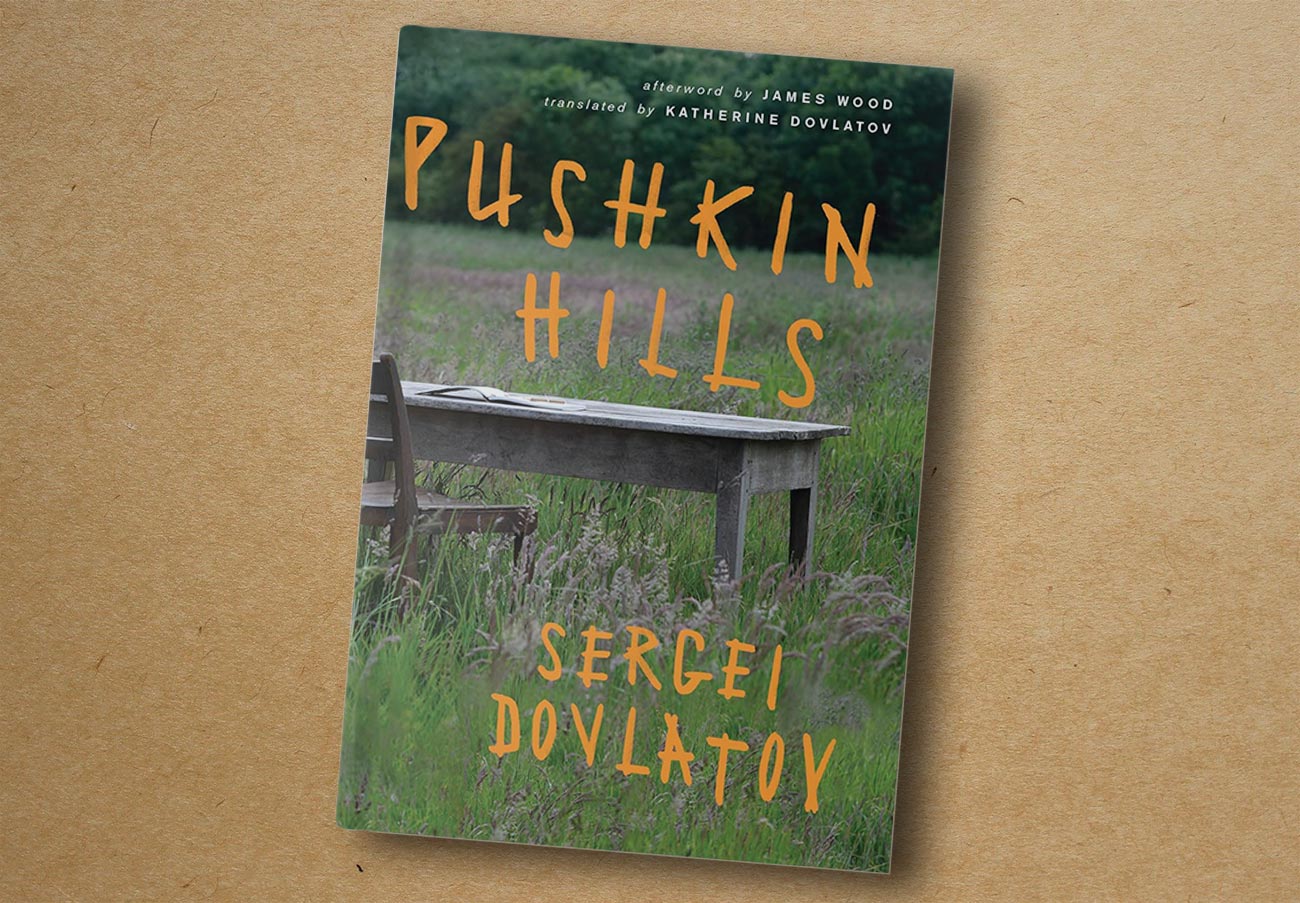
Dovlatov's style is autobiographical satire with a touch of hopelessness, especially manifested in his stories. In ‘The Compromise’, he scathingly ridicules the Soviet system and the work of journalists in the totalitarian era. In ‘Pushkin Hills’ (translated into English by Dovlatov's daughter, Katherine), the lyrical hero laughs at the adulation of Pushkin, while drinking and suffering from problems in his personal life. ‘The Suitcase’ tells how the hero is about to emigrate from the Soviet Union to the United States, taking with him only a small suitcase. Each thing he takes with becomes a souvenir from a past life.
96. Alexander Solzhenitsyn. ‘One Day in the Life of Ivan Denisovich’ (1959)
The story was first printed in 1962 in the ‘Novy Mir’ ('New World') magazine and was the first Soviet publication about the Gulag. It created a furor not only in Soviet society, but also around the whole world. The peasant hero recalled how he went to fight with the Nazis, was captured, escaped and immediately after he returned home, was sent to the labor camps. The story describes in detail the harsh Gulag life, which Solzhenitsyn knew firsthand, as he himself spent eight years in the camps.
97. Alexander Solzhenitsyn. ‘The Gulag Archipelago’ (1958-1968)

The world’s best-known book about the Soviet camps took 10 years to write. Divided into seven parts, ‘Archipelago’ describes the history and practice of the Gulag. The book is based on the personal experiences of the author, who spent around eight years in various camps, and the stories of more than 250 inmates with whom he spoke. Shortly after the publication of the first volume in Paris (December 1973), Solzhenitsyn was expelled from the USSR and all his previously published works were destroyed (at least those the authorities could find).
98. Andrei Bitov. ‘Pushkin House’ (1964-1971)
All of Russia is Pushkin's House without its “curly-haired guest”. This is how Bitov explains the title of his book (curly-haired guest is actually poet Alexander Pushkin himself). This is a postmodern novel about literature, about Leningrad (now St. Petersburg), about Stalin's repressions and the ‘Khrushchev Thaw’. At the center is a philologist, an employee of the Institute of Russian Literature in Leningrad, better known as the Pushkin House. The novel was first published abroad; in the USSR, it was, however, only distributed via ‘samizdat’ (unofficial self-publishing).
99. Yevgeny Yevtushenko. Poetry collection
One of the few poets whose lines have officially become part of the living Russian language, turned into proverbs, even clichés: “A poet in Russia is more than a poet”; “Do Russians want war?”; “Here is what’s happening: you see, my old time friend won’t visit me”.
Yevtushenko filled entire stadiums to hear him read his poems, not only at home, but also abroad (and foreign poetry is rarely as popular). Possessing incredible charisma and artistry, he could easily hold the attention of a huge audience. His poems ‘Babi Yar’ and ‘The Bratsk Station’, in Soviet times, were familiar even to those who were far from poetry. And dozens of poems were put to music, used in movie soundtracks and on the stage.
100. Joseph Brodsky. Poetry collection

Finishing only seven grades of school, Brodsky was incredibly erudite and a man with a fine sense of the word. His poetry was characterized by a fundamentally new language. “It is impossible to retell the sorrowful metaphysics of Joseph Brodsky,” literary critic Samuel Lurie used to say. The leitmotif of the poet's work was freedom and morality. He put goodness at the top of the list. But, by Soviet standards, the style and themes of his poems were incomprehensible to the masses, so Brodsky was bullied, condemned and sent into exile for idleness. Having already been forced to leave the country, Brodsky received the Nobel Prize for Literature in 1987 “for an all-embracing authorship, imbued with clarity of thought and poetic intensity”.



